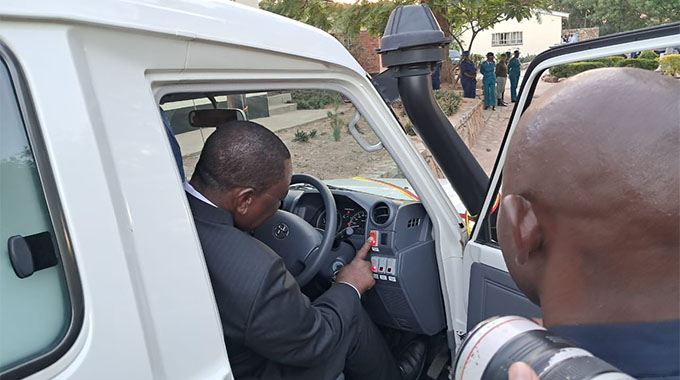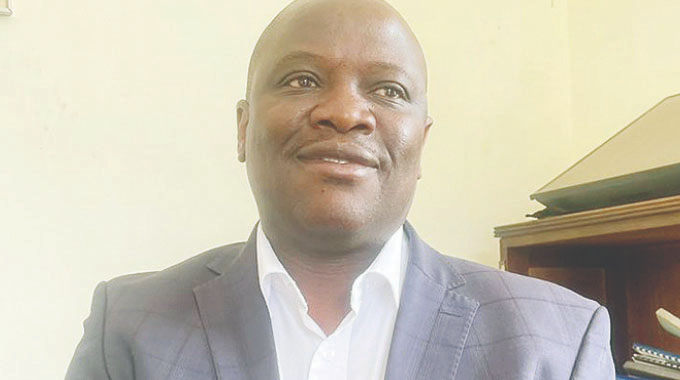Chiredzi hunger- Govt, Red Cross & partners bring cash as mitigation

Phyllis Kachere Deputy News Editor (Convergence)
“I will use my late husband’s necktie to secure the money. I will hide it inside the necktie and then tie it around my waist. No one will ever know I have any cent on me,” says a sick and frail 78-year-old Kokwani Pukwani Matsuve as she stuffs the US$65 into the neckties.
Her grandchild, Elias Chauke (13) collected the money on her and the other family members’ behalf from the Zimbabwe Red Cross Society and a money transfer agent team that was distributing the Disaster Relief Emergency Fund (DREF) cash vouchers at Malipati Business Centre in Chiredzi South.
Kokwani Matsuve of Magezi Village in Malipati on the fringes of the iconic Gonarezhou National Park also stays with her elderly sister-in-law, who, because of old age and mental-ill health can’t remember her first name or when she left her home “kwaSave” to come and stay with her husband’s sister.
She only remembers that she is MaNwabuyangwe.
The two incapacitated ‘kokwanis’ (grandmothers) also stay with five minor grandchildren, whose parents have crossed the nearby border to South Africa and only come back once a year, leaving Elias to fend and care for the whole labour-constrained family of seven.
Their only hut was destroyed during Tropical Depression Anna but the Red Cross volunteers mobilized the community and built them another room. Because of resource constraints, they are yet to affix a door on the room.
Although Elias is 13, he looks like a nine-year-old and ZRCS volunteer Mr Jelas Majoki said he could be a victim of stunted growth that is endemic in most families in the three wards.
Kokwani Matsuve’s family is one among the 3 000 beneficiaries of the DREF in the three targeted wards of the Chiredzi of Masvingo province.
The ZRCS, in partnership with the International Federation of the Red Cross and Red Crescent Societies (IFRC) is providing humanitarian assistance in form of food parcels and health care services in the district.
ZRCS secretary general Mr Elias Hwenga said the overall objective of this DREF operation is to anticipate and respond to the emerging food insecurities in.
“DREF also aims to improve the preparedness of the Chiredzi community to the forecasted hydro-meteorological emergencies in light of the normal-to-above normal rainfall forecast. The imminent emergency preparedness activities are being complimented by early actions that are aimed at mitigating and minimizing the humanitarian impacts of the lean season and anticipated hydro-meteorological hazards,” said Mr Hwenga.
He said the operation is also now set to provide immediate assistance to address the basic urgent food security needs of food insecure households in Chiredzi after the completion of the beneficiary registration exercise.

“DREF will target a registered 600 most vulnerable households, which is approximately 3 000 people to meet their basic needs through cash assistance for a period of four months. The food insecurity assistance will be complimented by the provision of water and sanitation facilities in Wards 13, 14 and 15 in the Chiredzi district.”
An analysis carried by the ZRCS showed that the three most vulnerable wards in the Chiredzi district (Wards 13, 14 and 15) have been exposed to the two major shocks of drought and the Covid-19 pandemic.
“The two have contributed to the observed food insecurities in the whole district and in particular wards 13, 14 and 15. The drought has manifested in low yields particularly cereals which cannot sustain food requirements throughout the year resulting in reduced availability of food at household level,” said Mr Hwenga.
To meet the drought-induced food shortages, he said, the community now relies on the local retailers who are supplied mainly by wholesalers from Chiredzi town.
Additional supplies come from the two neighbouring countries of South Africa and Mozambique.
IFRC senior operations officer for the Zimbabwe, Zambia and Malawi cluster, Ms Hillary Dhliwayo-Motsiri said a lot still needs to be done to alleviate the food insecurity and water and sanitation challenges in Chiredzi district’s rural areas.
“We are happy with the progress done under the emergency programme in Chiredzi rural. This area, being an arid region, is one of the most affected by erratic rains and results in food insecurity. The situation has been compounded by climate change.
“This is just an emergency project meant to mitigate the resultant effects of food insecurity. The Zimbabwe Red Cross Society is implementing and IFRC is providing the support. We are giving out cash to the most vulnerable.

Kokwani Pukwani Matsuve and her sister-in-law MaNwabuyangwe
“We have also rehabilitated 10 boreholes in the area, some of which stopped being functional for as long as five years. Communities here walk long distances in search of potable water,” said Ms Motsiri said.
She said the Red Cross has always been involved in drought relief programmes from the period of the devastating 1982 drought where it was operating in Chivi district.
Chiredzi district administrator Mr Lovemore Chisema said as the district drought relief committee, they were working with partners like the ZRCS to implement a drought-induced food deficit mitigation programme through the Department of Social Development.
“Most vulnerable families are scattered particularly in the rural wards of the district with the most vulnerable being the elderly, the ill, and child-headed families.
“Most of the identified vulnerable families are labour constrained either because they are headed by the elderly who can no longer work, let alone fetch water from boreholes whose long distances apart do not help the situation, or because they are child-headed,” said Mr Chisema.
As a district, he said, they were being proactive by engaging Government’s partners and help mitigate the effects of the climate change-induced food insecurity in his area.
“The crop and the vulnerability assessments are still to be concluded but an emerging pattern is showing food insecurity in the district. Government cannot wait for the full results. We have already engaged our partners and I am glad; the response has been positive as you already have witnessed.
“Government is also distributing grain to the vulnerable across the district. President Mnangagwa has already made the clarion call, no one should be left behind, hence we are most active the most vulnerable areas in our district,” said Mr Chisema.
He said under the drought mitigation programme, Government was targeting 167 000 beneficiaries in the Chiredzi district.






Comments